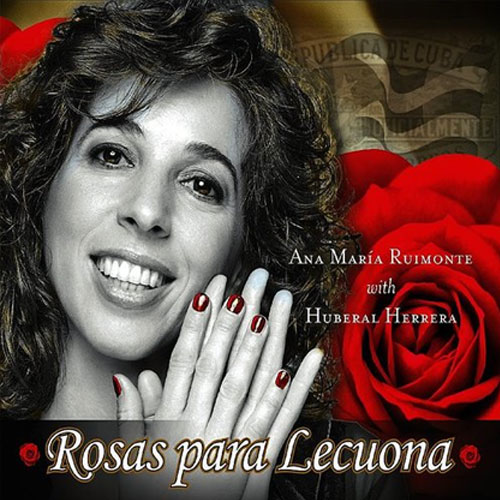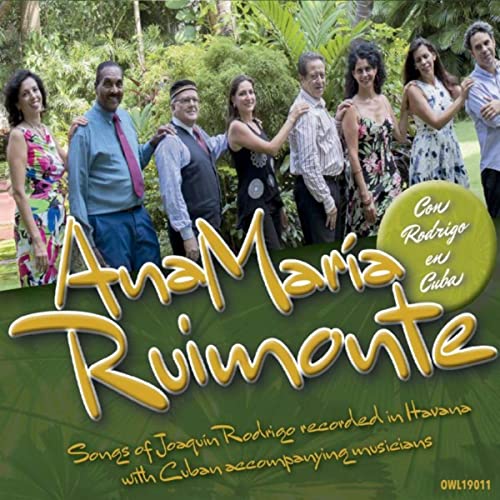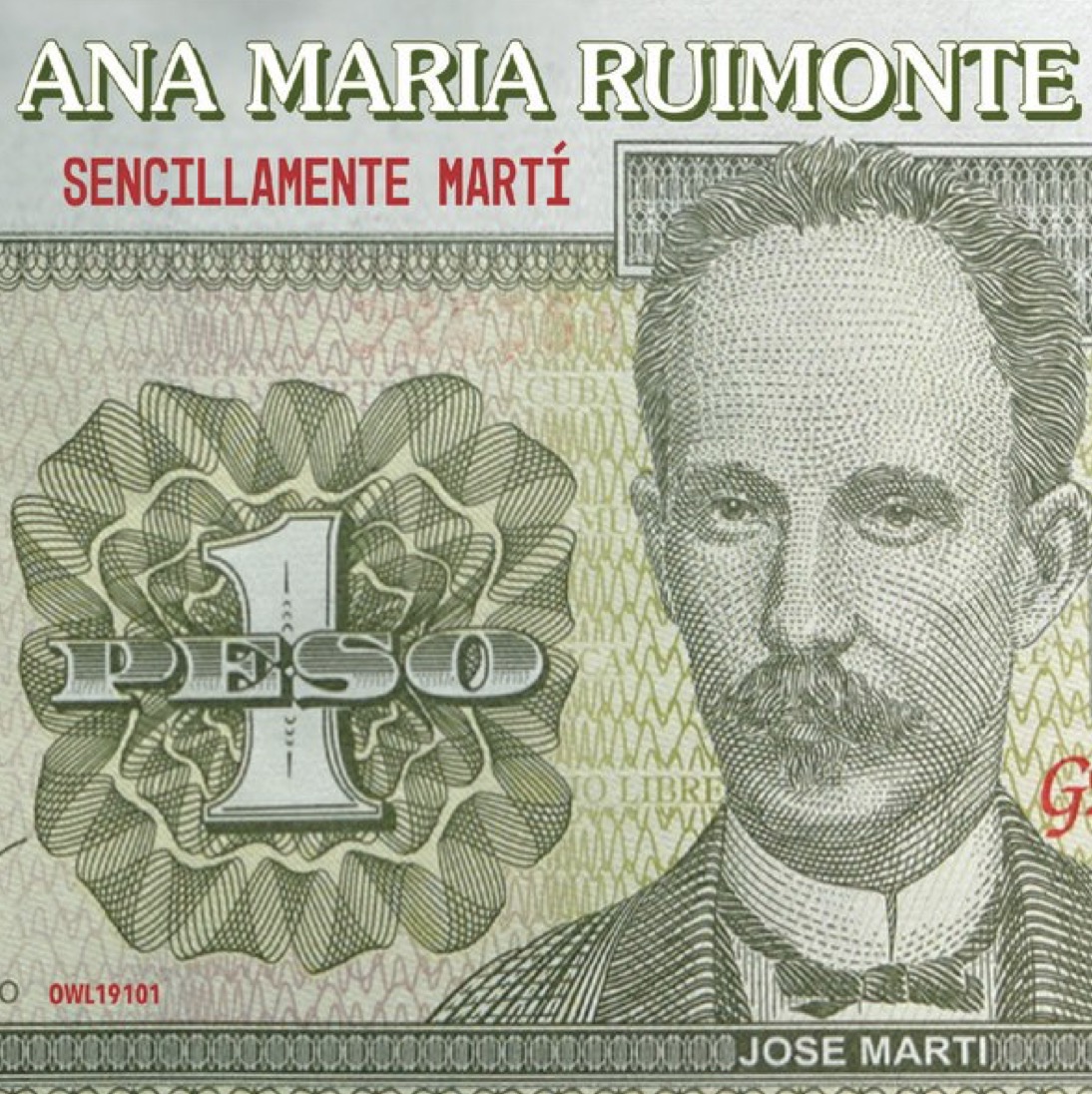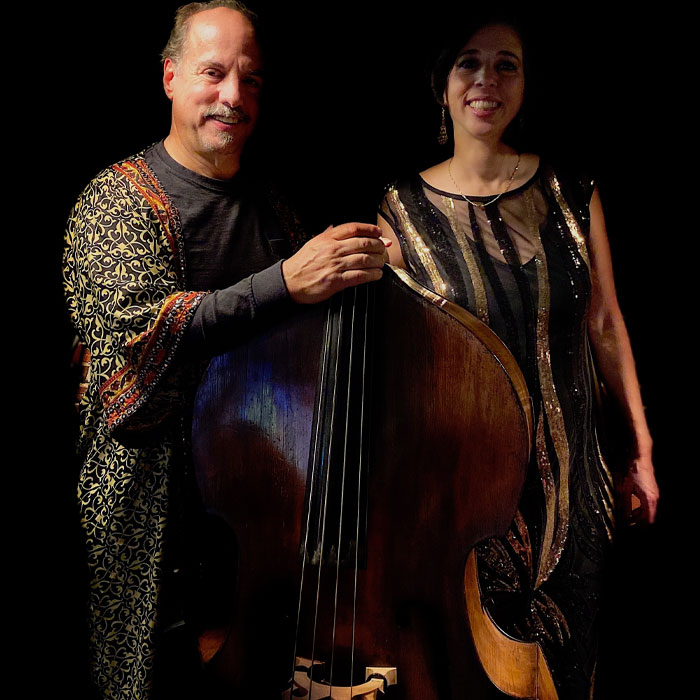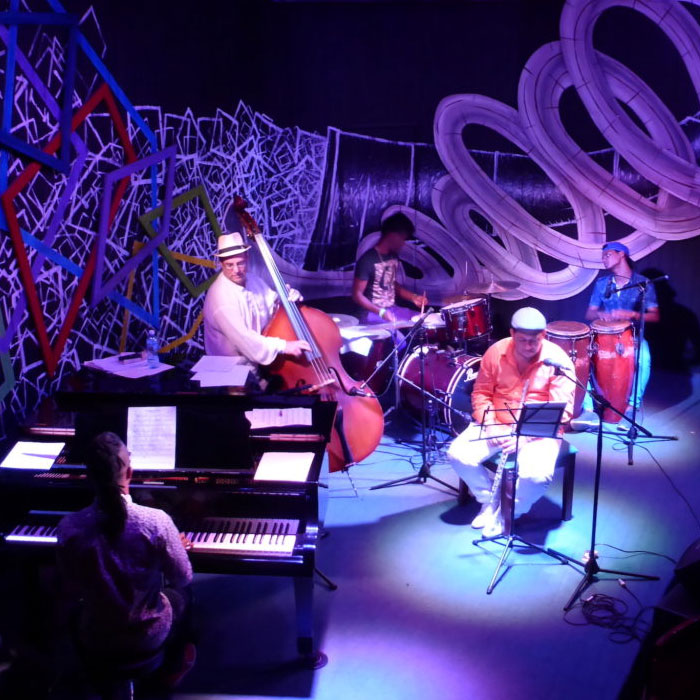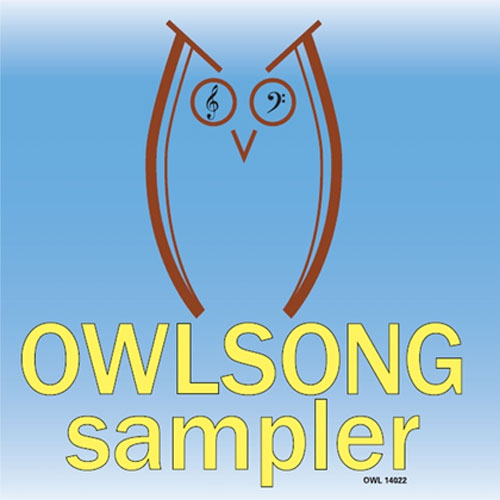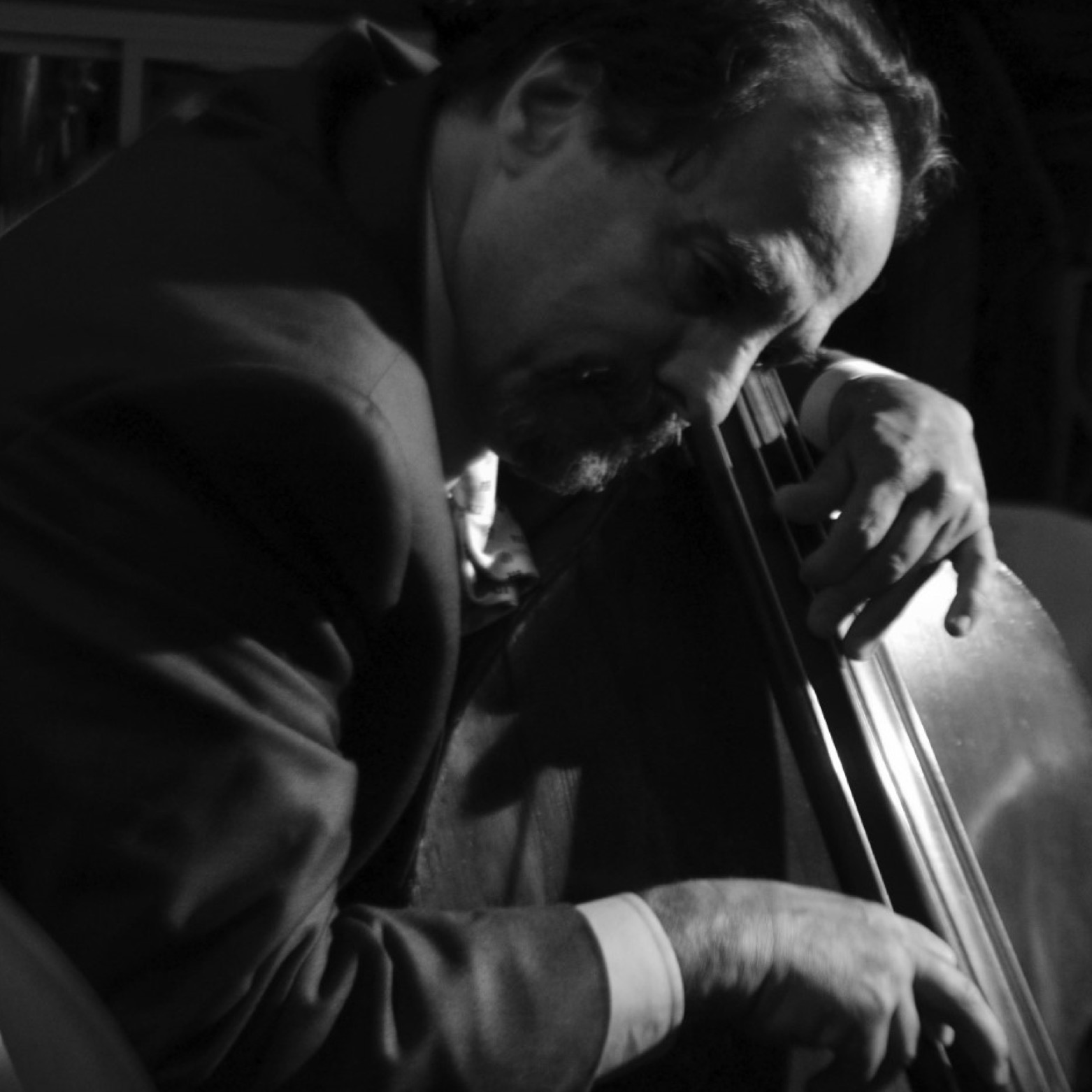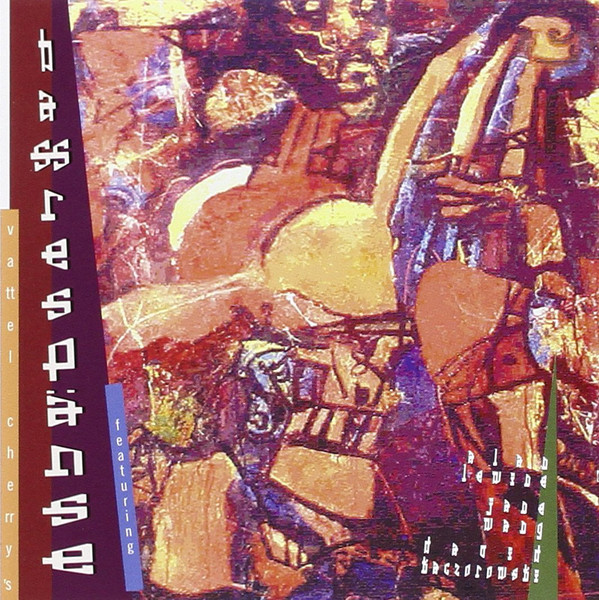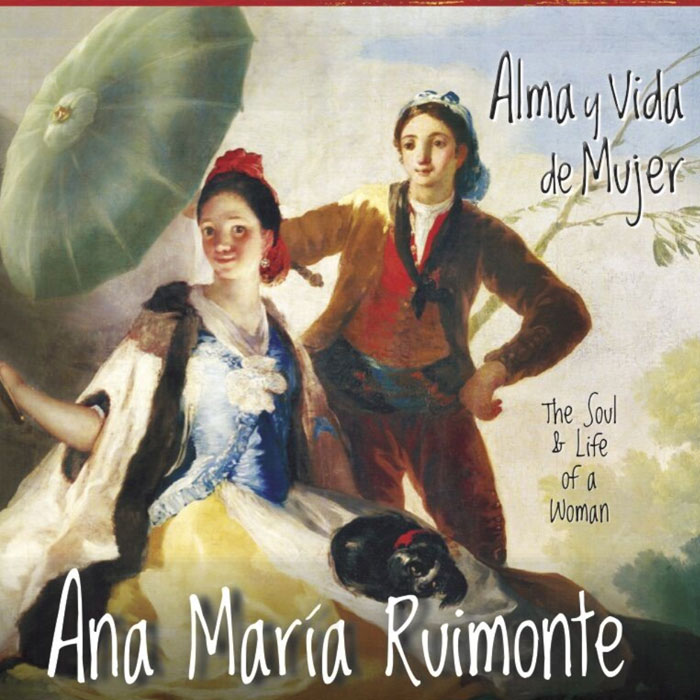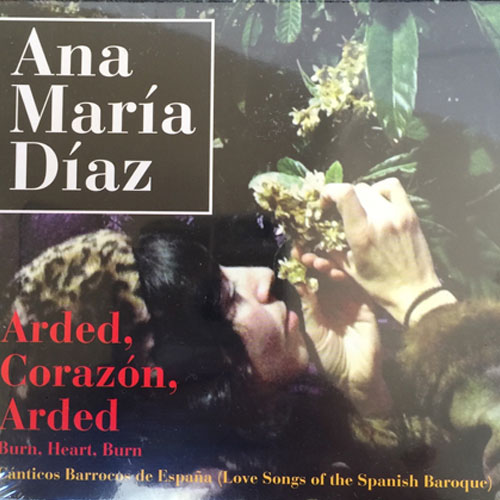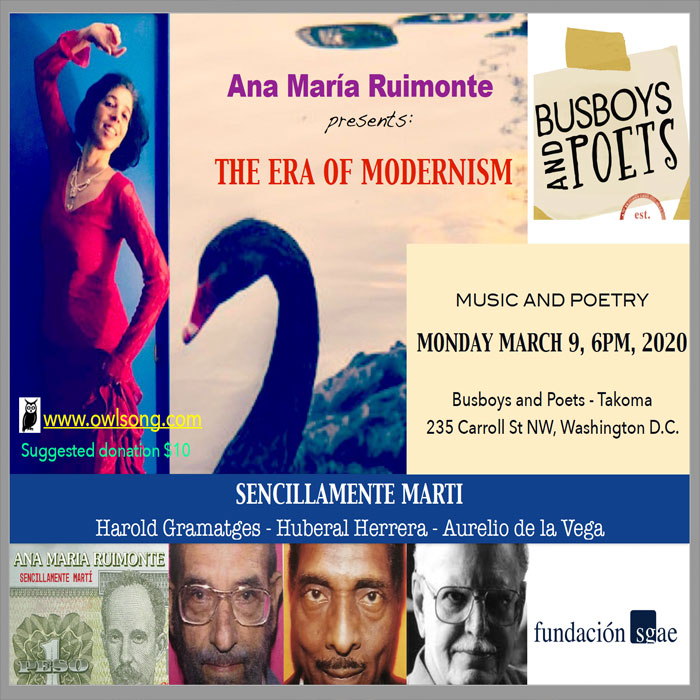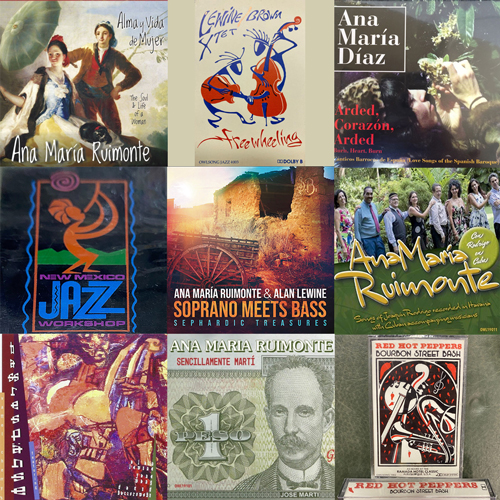The Era of Modernism
The Modernist movement opens a cultural and ideological landscape where artists seeking liberty and equality tried to escape a materialist world through their art.
© 2020 Owlsong Productions Inc. Lyrics from the poetry of José Martí is are the public domain. All rights reserved.
Thanks to the SGAE Foundation of Spain for their help in the promotion and distribution of this CD.
Ana María Ruimonte Owlsong Productions Inc.
“A great writer incorporates into himself a great painter, a great sculptor, and a great musician”
Modernism Projects
Prologue
My interest in José Martí began while walking the streets of Ha- vana in 2016, where I saw many busts and sculptures of the poet in houses and public squares. Then in New York’s Central Park I saw the huge sculpture of Martí on his horse, depicted at the moment he is killed and falling from it. You can see it just inside the park on Central Park South where Sixth Avenue (Avenue of the Ameri- cas) ends. Why do United States citizens show us Martí this way, in death, to eternalize his final moment?
After recording some songs composed by Ernesto Lecuona to verses by Martí, with Huberal Herrera for my first Owlsong CD of my Cuban Classical series, Rosas para Lecuona, I decided to find out more about his character. Martí’s poetry had inspired great composers, both Cuban and of many other nationalities. And I asked myself why this author ideologically links so many Cubans and others all around the world. They seemed to be fighting for freedom, something they dream of.
After that, I started to look for songs at the U.S. Library of Con- gress, various university libraries, the Biblioteca Nacional - the National Library of Cuba (which is named for José Martí, who is, indeed, considered the national hero known as the Apostle of Li- berty and Cuban Independence), and the Centro de Difusión de Música Contemporánea, in Havana. I gathered a vast collection of songs by Cuban composers with lyrics from the writings of Martí. Other songs seem to be lost – for example, I found reference to - but no music of - songs by a composer named Smith.
In the United States, and thanks to Iraida Iturralde of the Cuban Cultural Center in New York, I contacted the maestro Aurelio de La Vega who immediately sent me the scores of his Canciones Transparentes (Transparent Songs), which I carried later to Ha- vana, where we recorded them in June 2018 and February 2019, to
include them in this, my most recent Owlsong CD, Sencillamente Martí.
José Martí and his ideas have become a common element for Cubans around the world, residents and expatriots; he also con- nects Latin Americans and with the United States and Spain through the Modernist movement. His work also relates to other poets such as Walt Whitman for his singing to freedom and inde- pendence. José Martí communicated with a sincere soul and hon- estly; he gave his life for the ideals of freedom of the Cuban peo- ple, Latin-American people and ultimately, for humanity. The liter- ary movement known as Modernism, of which he was precursor and a part, opens a cultural and ideological ideal where artists worked to escape from a materialist world, through poetry, music, journalism, architecture, and other arts, and regenerate this world to freedom, equality and fraternity.
MODERNISM
In the 19th Century in Hispanic America, an independentist and nationalist feeling spread, developing out of Spanish models. Many authors of the time were influenced by Parnassians and Symbolists from France. However, thanks to their travels, we find a mutual influence with Spanish writers who also sought esthetic and social change.
Artists were often nonconformists, always looking for renovation and innovation, and were generally opposed to the artistic tenden- cies of the previous times, breaking with traditions.
Modernism in particular looked for liberty and equality, through arts such as journalism, poetry, music and by means of recognizing the soul of persons and things.
JOSÉ MARTÍ
All of the songs on Sencillamente Martí are composed the lyrics by José Martí. José Martí was born in Havana, Cuba in 1853 to Spanish parents. He is universally known as the Apostle of liberty and of Cuban Independence. He lived some years in exile in Spain due to his support for the Cuban rebels. He graduated from university in Law and Philosophy and Letters in Zaragoza, Spain. He travelled to France, where he met Victor Hugo; from there, he went to England. He later travelled to Mexico where he started writing for the periodical Revista Universal. There he developed the concept of a common Latin American cultural land, Our America. He travelled to Guatemala and New York where he wrote The Hour, and he wrote for The Sun. He went to Venezuela. As the great Nicaraguan poet Rubén Darío noted, Martí belonged to “an entire race, an entire continent.”
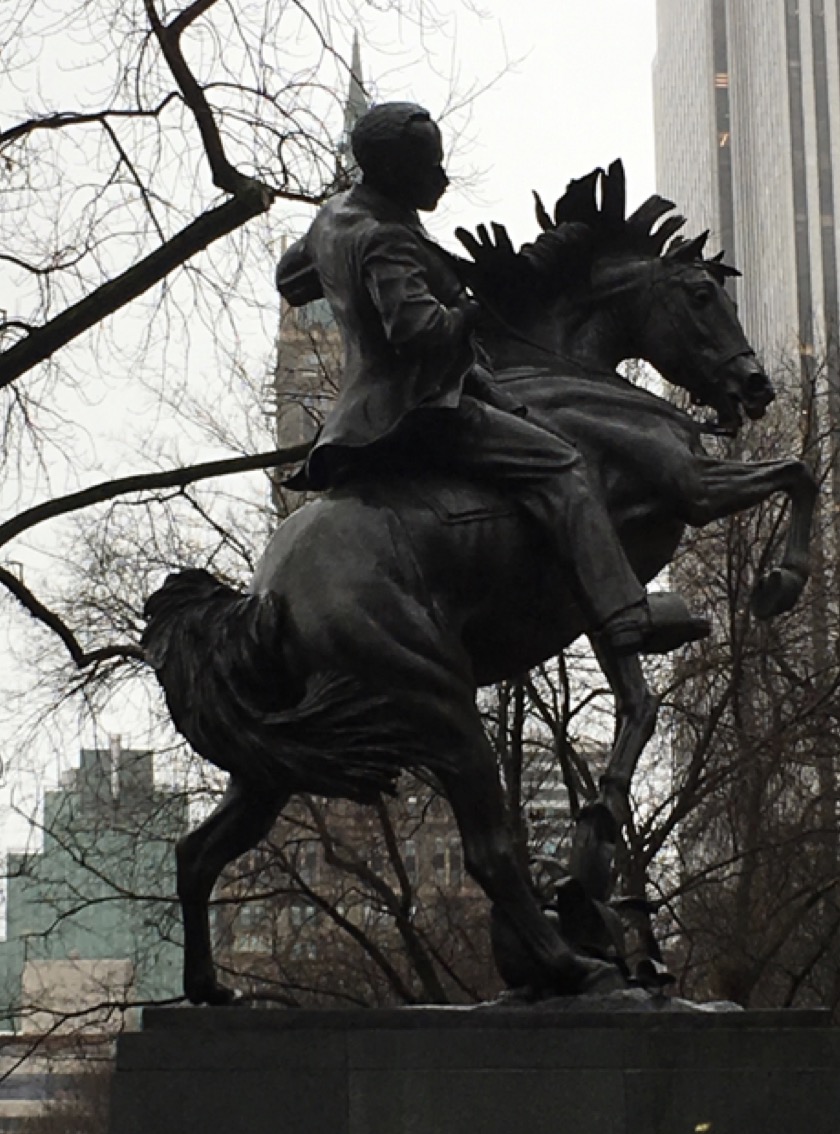
As his prominent Central Park South statue proclaims:
“APOSTLE OF CUBAN INDEPENDENCE / LEADER OF THE PEOPLES OF AMERICA / AND DEFENDER OF HUMAN DIGNITY / HIS LITERA- CY GENIUS VIED WITH HIS / POLITICAL FORESIGHT. HE WAS BORN / IN HAVANA ON JANUARY 28, 1853 / FOR FIFTEEN YEARS OF HIS EX- ILE HE LIVED IN THE CITY OF NEW YORK. / HE DIED IN ACTION AT DOS RIOS IN / ORIENTE PROVINCE ON MAY 19, 1895.”
Between 1881 and 1895, Martí lived in New York working as a diplomat representing HispanoAmerican interests. He founded the Cuban Revolutionary Party to work toward Cuban independence from the oppressions of the Spanish government as well as the Spanish and American business interests that controlled his country. Martí looked for a political future for Cuba independent from Spain and free from the interference of the United States. He also fought for racial equality by writing in Patria, the newspaper of the Cuban Revolutionary Party that he founded. In 1895, returning to
Cuba to participate in a war for independence, he became a martyr for the cause.
In Haines Falls in the Catskill mountains of New York, José Martí wrote the poems he published as Simple Verses (Versos Sencillos) in 1890. These verses are autobiographical, and “they sprout from the heart” of the poet full of memories of his experiences: Memo- ries of his lost love in Guatemala, reminiscences of his life in Spain, and his worry for the Cuban cause and the sacrifice of his homeland.
COMPOSERS
Huberal Herrera (b. 1929 in Mayarí, Cuba) has lived most of his life in Havana. He incorporates in his Cinco Canciones Cubanas (Five Cuban Songs), Spanish and Cuban influences and festive (con sandunga) rhythms, melodies and chords in elaborate and complex progressions, with alternate rhythms in melody and both hands in the piano, using syncopation, and simultaneously alternating binary and ternary rhythms using his particular musical lan- guage, sometimes youthful, happy and spontaneous.
Harold Gramatges (1918 -2008) was born in Santiago de Cuba and died in Havana. In 1942 he won a scholarship to study in Massachussets and in New York with Aaron Copland. He was a professor of harmony, counterpoint and fugue, instrumentation, history and esthetics of music and composition at the Conservatory of Havana until 1959. As a neoclasicist he employed polytonality, polyharmony and counterpoint with a personal and Cuban musical language. He received numerous awards, such as the Premio Iberoamericano de la Música “Tomás Luis de Victoria” from SGAE, awarded as the highest public honor for his contribution to enrich the musical culture of our lands.
Aurelio de la Vega (b. 1925 in Havana, Cuba) has lived most of his life in Los Angeles, California, where he first ventured in the 1950s to study with Arnold Schoenberg. Maestro de la Vega is now retired as Professor Emeritus of Composition from the Uni- versity of California in Northridge. In his Canciones Transparentes (Transparent Songs), he represents Modernism by incorporating a chromatic language combined with a powerful rhythmical impulse, with expressive colors that intimately relate text with melodic line and accompaniment, showing the world of dreams in a surrealistic style. The five songs are entirely and perfectly written for a lyric soprano in tessitura and phrasing with a small chamber ensemble. The voice alternates with the clarinet in the melody, while the piano paints atmospheres such as a starry night or roaring sea. The cello accompanies providing low support, and sometimes plays solo melodies in the way of descending legato scales to show clarity or a green color, or ascending to manifest hope. Dynamics and changes in rhythms and tempo appear in all his songs, and on the whole produce the effect of suspense and mystery.
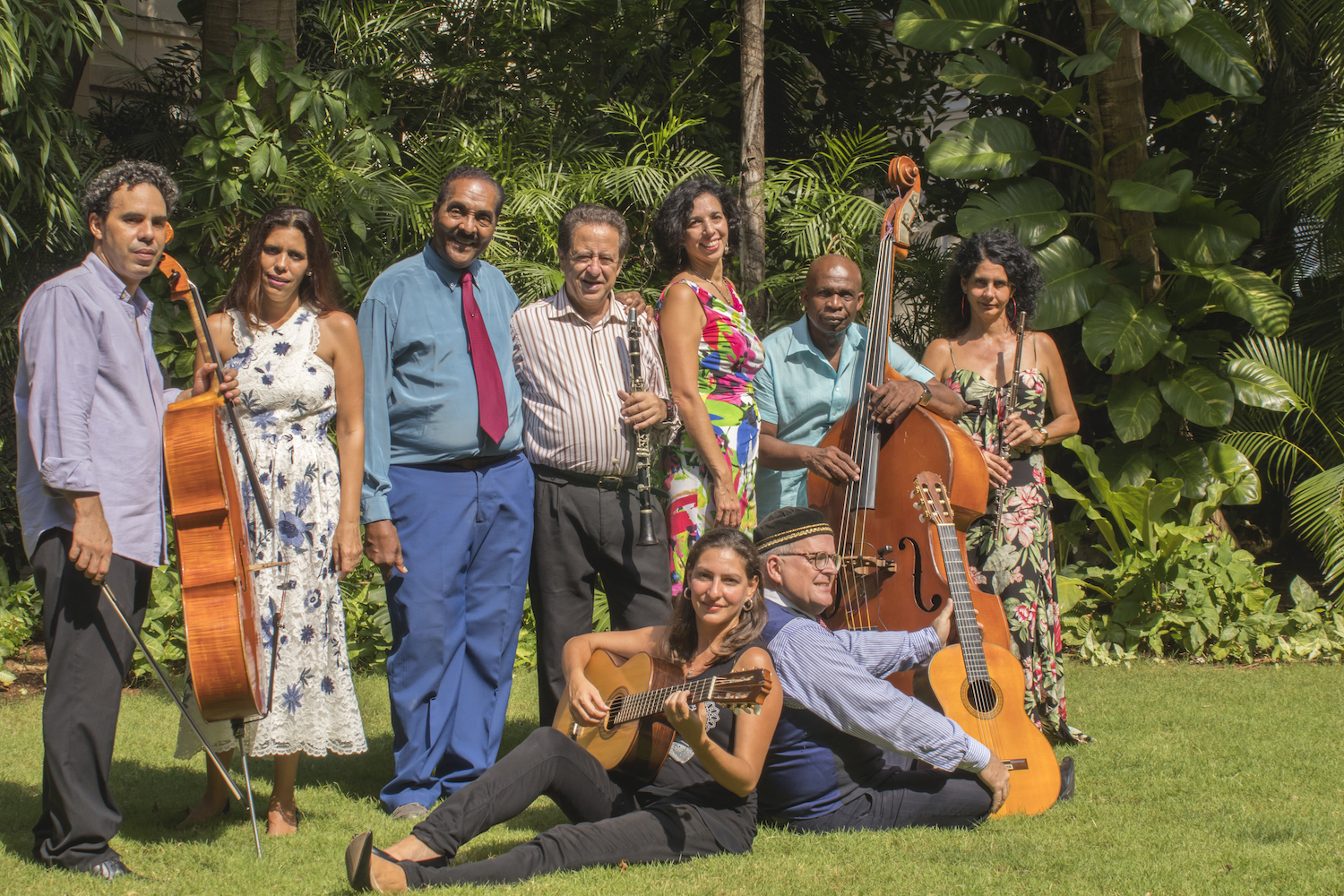
ARTISTS
Ana María Ruimonte, born and raised in Madrid, Spain, is a classical singer experienced in roles as both soprano and mezzosoprano. She obtained her degree at Spain’s leading vocal conservatory, the Escuela Superior de Canto of Madrid in 2006, and studied fur- ther in Nuremberg, Philadelphia and New York. She advanced to final rounds in international competitions Giordano in Foggia, Italy and Classical Singer in Chicago, and Washington, US. Ana María appeared numerous times on Spanish National Radio and Televi- sion (RTVE), and since relocating to the United States in 2012, has appeared on American and Cuban radio and television.
While a resident singer with Madrid’s Teatro Real (Royal Theater), Ana María shared the stage with most of the biggest stars of the opera world, such as Plácido Domingo, José Carreras, Montserrat Caballé and Dolora Zajick, appearing on opera CDs released by Deutsche Grammophon and other major labels. She also appeared on several major European DVD and BluRay releases of opera and frequently on Spanish national television.
Later, she spent some years as a full-time tenured member of the National Chorus and Orchestra of Spain (OCNE) with whom she toured the world with famed conductor Rafael Frühbeck de Burgos, including appearances in 2009 at Lincoln Center in New York.
Since relocating to the US in 2012, Ana María has released 4 CDs on the Owlsong label and performed in many cities in the US; Belgium; Netherlands; throughout Spain, in Jerusalem and Tel Aviv, Israel; Havana, Cienfuegos and Santiago de Cuba and elsewhere. Excellent reviews have also been forthcoming in print, online and broadcast.
During 2015-16 Ana María presented a series of original programs at Opera America in New York City.
In 2016, she travelled to Havana to begin research and work on the repertoire of Ernesto Lecuona with piano maestro Huberal Herrera, performing in concert Rosas para Ernesto Lecuona at the Auditorio del Museo de Bellas Artes. Ana María has performed annually by invitation since 2016 as part of the International Festival Cubadisco and recorded for the Owlsong label with piano maestro Huberal Herrera (“El Lecuonista”), members of Cuba’s National Symphony Orchestra and various others among Cuba’s best classical musicians and with Alan Lewine as producer and occasionally bassist. With pianist Huberal Herrera, Ana María recorded the CD Rosas para Lecuona at PM Records Studios in Havana, mixed and mastered in Philadelphia, and which received rave reviews in the Spanish print magazines Opera Actual and Melómano:
Excellent selection, excellent duo, great sensitivity and very theatrical, she demonstrated her great capacity with her fine vocal qualities and obtains all the brightness of her well-timbered voice
[Ana María Ruimonte] caresses the texts and melodies with the support of the impeccable reading of the Cuban pianist...
During 2016 through 2020, Ana María and Alan Lewine undertook six successful tours of Cuba, performing in the Sala Lecuona of the incredible Gran Teatro de la Habana, the Sala Teatral of the Museo Nacional de Bellas Artes de La Habana, the Museos de la Música in both Havana and Santiago de Cuba, the Sinagoga Cen- tro Hebreo Sefaradi in Vedado, the Auditorio de la Biblioteca Nacional “José Marti”, Teatro Bertold Brecht, Pabillón Cuba and the spectacular Teatro America in Havana, and several other locations. Also, related to this most recent Owlsong release Sencillamente Martí, celebrating the music of a variety of Cuban contemporary composers writing to the poetry of José Martí, Ana María appeared with Alan in Cuba in November 2019 as an invited featured per- former for the Festival de Música Contemporánea. She has pre- sented her scholarly musical program The Era of Modernismo at CultureWorks in the Philadelphia Building in Philadelphia, the Museo Provincial in Cienfuegos, Cuba, Sala José White in Matan- zas, Cuba and the Oratorio San Felipe Neri in Havana, Cuba.
Ana María’s bilingual multimedia theatrical spectacular about life and music in 17th century Spain, The Cart of Love (El Carro del Amor), continues in development, but has already been honored with a featured performances including at the Library of Congress in Washington DC, at Casa de Alba in Havana Cuba, at Palacio de los Olvidados in Granada, Spain and other places around the world. With renowned bassist/arranger Alan Lewine and Soprano Meets Bass, she helped develop and sings the concerts 9 Centuries of Music in About An Hour and Sephardic Treasures. They have performed these programs and others in Israel, Cuba, Spain, Bel- gium, and the Netherlands as well as throughout the United States.
In 2019, she created the series Slavery, Miscegenation and Libera- tion including in them, the program Africana Soy, with songs and zarzuelas by Gustavo Sánchez Galarraga and Ernesto Lecuona, about slavery and race relations in Cuba, and also The Era of Mod- ernism, which concept includes the poetic works of Juan Ramón Jiménez, Sánchez Galarraga, Lecuona, Walt Whitman, Edgar Allen Poe and José Martí. Ana María has presented this program at the Festival de Música Contemporánea de Cuba at the Oratorio San Felipe Neri and the Sala José White in Matanzas and in Culture- Works in Philadelphia.
Huberal Herrera
Born in Mayarí in Holguín province of Cuba in 1929, Huberal Herrera is acknowledged as the world’s leading interpreter of the piano music of Ernesto Lecuona. He completed his music studies at Hubert de Blanck and Amadeo Roldán conservatories in Ha- vana, and later studied Spanish music in Madrid with maestro Juan Bernal. Maestro Herrera also has a doctorate in Law, with Masters Degrees in Administrative, Diplomatic and Consular Law from the University of Havana.
During his 75-year career, Huberal Herrera has appeared in concert outside Cuba many times, throughout the Caribbean, Latin Ameri- ca and Europe, as well as in Egypt, Lebanon, China, Korea, and the USA.
Huberal Herrera was a founding member of the Union of Writers and Artists of Cuba (UNEAC), has received the Distinction Nicolás Guillén, and has received nearly every medal and distinc- tion awarded to musical artists in Cuba, including the Gold Medal for National Culture, Raúl Gómez García Medal, Medal of Litera- cy, the Commemorative Medal on the 40th Anniversary of the Armed Forces of the Revolution, and the Distinction La Giraldilla, the Punta de Sílex, Gitana Tropical, and Prize of Honor at Cubadisco 2009 and 2019. He also taught for 26 years, receiving the Diploma of Merit and Gold Medal several times.
Maestro Herrera has been much recorded. His version of Lecuona’s La Comparsa was included on the Virgin Records com- pilation in 2000 Best Cuban Album in the World... Ever!. Huberal Herrera recorded the complete piano works of Ernesto Lecuona in 1999 for Spain’s Sociedad General de Autores y Editores (SGAE) released as a three-CD set to much acclaim on the Autor and Decca labels.
Huberal Herrera is a brilliant pianist possessing a beau- tiful sound like the greatest virtuosos of that instrument, who interprets the Cuban music as we always want to hear it. - Gonzalo Roig, composer, Cuba.
Mayté Aboy
Pianist Mayte Aboy graduated from university with degrees in Pi- ano, with a Golden Title at the prestigious Universidad de las Artes de La Habana. Mayte has won the highest awards in the Amadeo Roldán and Musicalia competititons and is represented as a pianist in the Catalog of the Centro Nacional de Música de Concierto. She performs with diverse Symphonic and Chamber Orchestras throughout Cuba and on tour. She also holds a Masters of Music in Interpretation and works as a professor in the Department of Chamber Music at Havana’s Universidad de las Artes. She has served as a member of the juries of different editions of Musicalia competitions in chamber music, and the Piano Competition Amadeo Roldán, as well as for Cuba’s “Grammys” – the Cubadisco Award.
In the realm of chamber music, Mayte has collaborated with the most renowned musicians of Cuba, Spain and Brazil. She recorded the works of Roberto Valera for voice and piano in the CD Canten los poetas, which was awarded the prize for Cubadisco 2012.
Mayte is a frequent performer as a piano soloist and in various chamber music festivals such as Festival Mozart Habana and Festival Música Contemporánea de Cuba.
Alejandro Rodríguez
Cellist with the Orquesta Sinfónica Nacional de Cuba. He has recorded many important works and toured throughout Cuba, Latin America and the US.
Flavia Méndez
Flavia Méndez began studying music in 2005 at the Escuela Vocacional de Artes Olga Alonso (EVA) of the province of Villa Clara, Cuba, specializing in clarinet. In 2010 she was awarded the Grand Prize on clarinet and woodwinds at the Regional Competition José Manuel Vázquez del Rey in the Cuban province of Cienfuegos. In 2014 Flavia began superior-level studies at the Cuba’s most prestigious conservatory, the Instituto Superior de Artes de La Habana (ISA). From 2015 until she relocated to Spain in 2019, Flavia played with the Orquesta Sinfónica Nacional de Cuba, which whom she recorded frequently and has undertaken international tours in the United States and Spain. In 2015 she was awarded the First Prize in clarinet in the First Edition of the National Competition of Clarinet in Havana, Cuba. Flavia played in the Chicago Jazz Philharmonic in concert at Roosevelt Theater of Chicago. In 2017 and 2018, she was chosen to perform in concert in Germany. In 2018, she got the highest qualification in her grad- uation concert at ISA in Havana. She has performed in Festivals such as Festival Mozart-Habana, Jóvenes Pianistas, Música Con- temporánea, Música de Cámara, Festival de los Clarinetes, del ISA, A Tempo con Caturla, Jazz Plaza, Música Joven de Alemania, and more. . Since 2019, she resides in Spain, working toward her Master in Interpretation and Research at the Superior Conservatory of Music Joaquín Rodrigo in Valencia, Spain and plays with the Joven Orquesta Sinfónica de Burgos, Spain.
Alan Lewine
Bassist and producer of Sencillamente Martí, Alan Lewine
(b. 1955 in Columbus USA) currently lives in the Philadelphia region. Much traveled, he founded Owlsong Productions in 1982 in Taos NM. As a double bassist, Alan has performed and recorded all over the U.S., Europe, Middle East and Latin America. Though primarily a jazz player, his influences include all forms of music. By way of example, his project with Ana María Ruimonte, Soprano Meets Bass: Sephardic Treasures (to be released on the Ansonica label in Summer 2020) – sets medieval Sephardic songs in arrangements in a jazz/flamenco/middle eastern style with a Spanish classical soprano (Ana María) singing the lyrics in Ladino and Spanish, and features an American klezmer and two American jazz musicians, three Israelis on percussion, flute and shofar, and Spanish flamenco guitar, percussion and piano players. Eclectic?
Yes, and previews have yielded high praise.
The main focus of his 40+ year career has been jazz, but Alan has performed and recorded with afro-pop stars as well as classical, gamelan, flamenco and klezmer notables in major venues through- out the US and in several other countries. He studied piano as a child, and later studied composition and arranging at university.
Mainly an autodidact on the double bass, Milt Hinton was a men- tor early in his career. Other important bass mentors have been Ray Brown, John Clayton, Lynn Seaton, Bruce Gertz and Leroy Vinnegar. Alan also played and studied traditional Ghanaian (Ewe) percussion with Obo Addy and studied and played Balinese gamelan with I Nyoman Suadin, flamenco with Julián Vaquero and Victor Monge, and traditional country blues with Johnny Never. Alan has also worked with many of the great names in jazz over the years, including Eddie Daniels, Kenny Davern, Richie Cole, Joe Henderson, Clifford Jordan, Henry Threadgill, Vinnie Golia, Anita O'Day, Sheila Jordan, Mose Allison, Butch Miles, Barney Kessel, Herb Ellis, Roy Hargrove, and old masters like Gus Johnson, Sweets Edison, Mickey Roker, Stephane Grapelli and many others.
Alan has appeared on 18 releases as leader, sideman and/or producer since the mid-1980s. He produced 10 albums for his Owl- song label since his very first release, Alan Lewine Septet: Original Jazz, recorded at a 1985 concert appearance, garnered awards and rave reviews in multiple publications, and formed the originating idea for the Alan Lewine Xtet playing his jazz compositions.
Also a scholar, Alan taught music theory from a jazz perspective at Portland State University in Oregon and has written and lectured about ethnomusicology and the history and anthropology of various jazz, Sephardic and other styles. He currently serves on the Boards of Directors of the International Society of Bassists and Philadelphia’s Jazz Bridge Project.
Alan’s current primary instrument is an early 20th century Tyrol bass. He uses Kolstein Heritage strings and Kolstein rosin, Acoustic Image amplifiers, and currently a Planet Wing pickup.
The song cycle by Huberal Herrera, Cinco Canciones Cubanas con Poemas de José Martí (Five Cuban Songs on Poems by José Martí), were recorded at Turtle Studios in South Philadelphia, Pennsylvania in November 2018, while Cuban maestro Huberal Herrera visited Philadelphia. In October, the maestro landed in the United States to present with me our 2017 Owlsong CD Rosas para Lecuona in concert at the Instituto Cervantes in New York. I suggested he remain in the country to work and record additional repertoire by Lecuona and his own songs, with Alan Lewine producing and playing bass on some of the songs. We later presented this material live in concert at An Die Musik in Baltimore.
We completed the collection of songs for the new Owlsong CD Sencillamente Martí by recording Harold Gramatges’ Penas and Aurelio de la Vega’s cycle Canciones Transparentes (Transparent Songs), all composed on poems by Martí also, at PM Records in Havana in two phases during March and June 2018. As part of a session including other material in March, I recorded Penas with pianist Mayté Aboy. In June we spent a long day recording the complex chamber work Canciones Transparentes. In Havana we work with engineer Adalberto “Berty” Hernández, who spent his entire birthday (into the late evening) capturing the Canciones Transparentes. Berty has a long career traveling the world as a sound engineer, including 17 years with Irakere, 3 years with the Havana Night Show, 21 years with Pablo Milanés and 5 years with Compay Segundo, as well as innumerable recording sessions in every style.
In July 2019, Alfred Goodrich, an excellent engineer who already had been collaborating with Owlsong Productions in other record projects, mixed and mastered Sencillamente Martí at Silvertone Studios in Ardmore, Pennsylvania under the direction of Alan Lewine as producer.
In August 2020 we presented the CD for a competition organized by Fundación SGAE (Spain’s Society of Artists and Composers, similar to US performing rights organizations like ASCAP or BMI), and Sencillamente Martí was chosen for the high honor of an award and grant dedicated to distribution and promotion.
Since its release, we have presented Sencillamente Martí in concert by invitation to the Contemporary Music Festival in Havana, in- cluding at the museum at the birthplace José Martí, in concert at the famous and beautiful Basílica San Felipe Neri, and in Matan- zas at the concert hall Sala José White in November 2019. In Jan- uary 2020, we presented this CD at the Museo Provincial of the city and state of Cienfuegos, Cuba, with the maestro Huberal Her- rera on piano joined by Alan Lewine on bass and Zorimé Caturla on flute with the program The Era of Modernism.
The CD Sencillamente Martí has also been presented in Phil- adelphia and Washington DC, as part of my program The Era of Modernism: José Martí and Walt Whitman of my series Slavery, Miscegenation and Liberation.
THE RECORDING, DISTRIBUTION AND PRESENTATION PROCESS
Lyrics Of The Songs
Five Cuban Songs with Poems by José Martí
Music by Huberal Herrera
Lyrics from the Versos Libres and Versos Sencillos
Transparent Songs
Music by Aurelio de la Vega
(Lyrics from Martí’s Versos Sencillos. Freely translated by the composer, Aurelio de la Vega)
Press Release
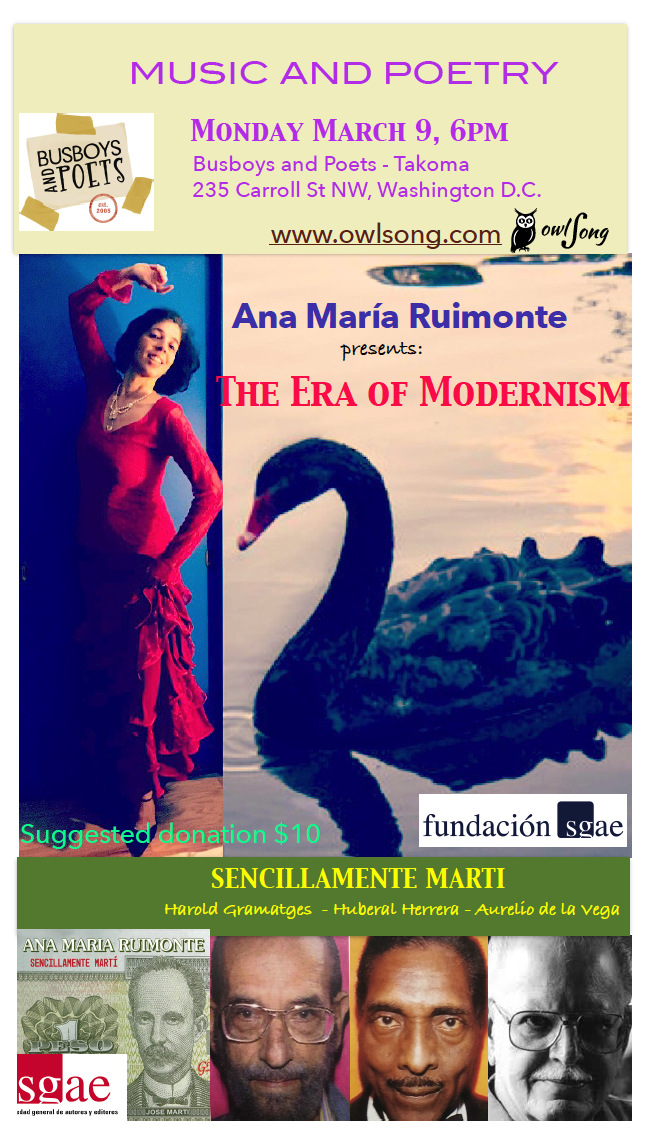 February 28, 2020
February 28, 2020
For Immediate Release
THE ERA OF MODERNISMO
COMING TO BUSBOYS AND POETS IN WASHINGTON D.C.
Philadelphia, PA - The Era of Modernism, a bilingual program of music, film, and poetry presented by Ana María Ruimonte, comes to Busboys and Poets Takoma, 235 Carroll St. NW, Washington DC, on Monday, March 9th at 6 pm. The Spanish-American classical soprano and scholar, shares what she has learned and performed here and in Cuba. This will be an unforgettable opportunity to understand and experience the Modernist movement, which seeks liberty and equality through the arts and journalism, so relevant to our times today.
Beginning with an introduction in English, we will listen to some examples of songs of Gustavo Sánchez Galarraga set to music by Ernesto Lecuona, read poems by Walt Whitman, Rubén Darío, and José Martí, and know the living composers Aurelio de la Vega and Huberal Herrera – both now in their 90s – through filmed interviews and a documentary in Spanish but subtitled in English.
“Ana María's fascinating anecdotes drawn from her experiences in Cuba and with Cuban musicians and bureaucrats always enlighten and amuse the audience”, said Owlsong Productions founder Alan Lewine, the bassist/producer who lived in Washington DC in the 90’s and 00’s.
The program includes a film of the concert “The Era of Modernism” from the 2019 Festival of Contemporary Music at Havana’s spectacular Oratorio de San Felipe Neri where pianist Huberal Herrera, flutist Zorimé Caturla, bassist Alan Lewine and a chamber ensemble accompanied Ana María in a concert of material from Ana María’s latest Owlsong CD release Sencillamente Martí. This CD received the honor of an award of support by Spain’s Fundación SGAE in 2020 that provides partial support for this program.
This bilingual presentation includes interactive discussion and public participation.
The Era of Modernism: Music and poetry
Monday, March 9th at 6 PM
Busboys and Poets, Takoma
235 Carroll St. NW, Washington DC
Free entrance, $10 suggested donation
More information:
About Ana María Ruimonte and La Era of Modernism, visit www.ruimonte.us
About Owlsong Productions Inc., visit www.owlsong.com
About Busboys and Poets, visit www.busboysandpoets.com
PREVIEW BY KARL STRAUB
MONDAY, MARCH 9, 2020, BUSBOYS AND POETS, Takoma Park.
Ana Maria Ruimonte is a Spanish-language opera singer.
This is, of course, an oversimplification. An opera singer, to me, is anyone who was trained in that tradition. They don’t necessarily have to be singing music from an actual opera; the tradition is in their blood, as they barrel down the street of whatever style of music they’ve chosen at this moment.
I think the music she’s bringing to town this time could be described as Cuban lieder, but why split hairs? She’s got a recent album out called ”Sencillamente Marti,” where the pieces are called Canciones Cubanas. To an American, that phrase is achingly beautiful, and it’s a treat to hear Ana Maria sing this stuff. It’s a useful counterweight to my American perception that any music from Cuba has got to be some sort of garish Technicolor riot of overripe brass, bolstered by a peppery orgy of unpronounceable percussion items. I love all that, of course, but it’s nice to fill out the picture and realize that these canciones do what so-called Art Song is supposed to do. Art Song, for me, is what happens when a serious composer concocts a musical setting for some preexisting poetry. If you’re familiar with the early work of Elton John, you know how writing songs in this way can lead to a suppleness of melody that you won’t find in, say, Bachman Turner Overdrive. While many songwriters appear to be trying to show how little melody they can get away with, the Art Song composer tries to find new things in the medium, twisting melodic lines like taffy, hoping to illuminate some nuanced aspect of the human condition that isn’t quite covered by crowd pleasing pop music.
Ana Maria will be at the Takoma Busboys and Poets, with a program including modernist Cuban poetry and a film of her singing some of the canciones with a chamber group. This sounds fascinating, but anything she does would be worth checking out, as she is a serious practitioner and scholar of the exquisite.
She introduced herself to me a couple years ago at a Baltimore performance of jazz guitarist Justin Lees.
Justin had mentioned me from the stage, and I think Ana Maria got the impression that I was some sort of cultural influencer, a personage one shouldn’t ignore if one was trying to build an audience for one’s highbrow art. Naturally, when opera singers get this impression of me, I don’t feel it’s my place to disabuse them of it, so she always keeps me in the loop when she comes to town.
I will probably have to miss this show due to teaching commitments, but many of you have no such excuse. Please go to her show, tell her Karl sent you, and sit back and let the poetry and music take you as far away from the vulgarity of Washington as you can be taken without the aid of hallucinogenics.

